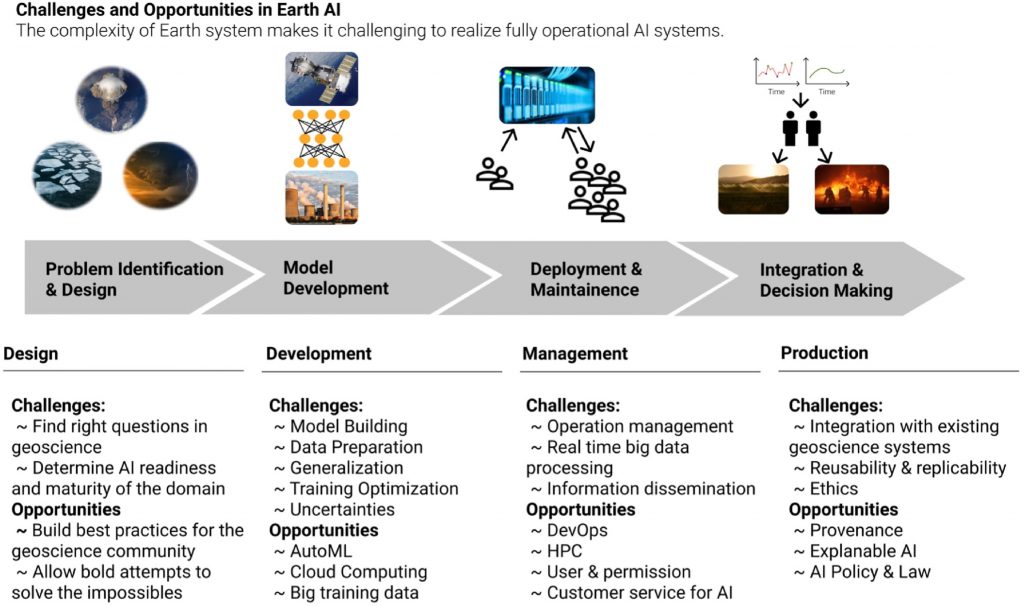In recent years, Earth system sciences are urgently calling for innovation on improving accuracy, enhancing model intelligence level, scaling up operation, and reducing costs in many subdomains amid the exponentially accumulated datasets and the promising artificial intelligence (AI) revolution in computer science. This paper presents work led by the NASA Earth Science Data Systems Working Groups and ESIP machine learning cluster to give a comprehensive overview of AI in Earth sciences. It holistically introduces the current status, technology, use cases, challenges, and opportunities, and provides all the levels of AI practitioners in geosciences with an overall big picture and to “blow away the fog to get a clearer vision” about the future development of Earth AI. The paper covers all the major spheres in the Earth system and investigates representative AI research in each domain. Widely used AI algorithms and computing cyberinfrastructure are briefly introduced. The mandatory steps in a typical workflow of specializing AI to solve Earth scientific problems are decomposed and analyzed. Eventually, it concludes with the grand challenges and reveals the opportunities to give some guidance and pre-warnings on allocating resources wisely to achieve the ambitious Earth AI goals in the future. [pdf, bib]


